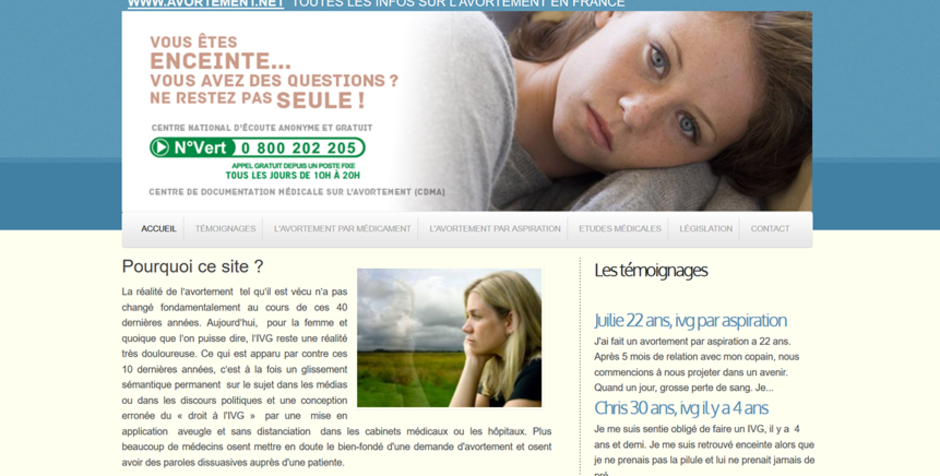Article published in French on Causeur.fr
The “crime of stifling access to information on abortion” is liberticidal.
In the country of human rights and freedom of speech, there is still one taboo subject: Abortion and the sufferings resulting from it. Professor Nisand, yet a defender of abortion since the very beginning, says there is a pure negationism. And it is organised at the highest level of the State.
Zero tolerance for freedom of speech.
Indeed, after having created a crime of stifling abortion, which was extended to any form of moral or psychological pressure, vague crime which is widely interpreted contrary to the principle of strict interpretation of penal law, the government invented a crime of stifling access to information on abortion and is now willing to extend this crime to the internet: anyone who would dare publish on the web information about existing assistance for women who would want to keep their child or on the sufferings that many women experience after an abortion would be accused of lying to women and could be prosecuted.
The government also wants to implement the zero tolerance policy that it had announced. No matter that it means to merrily violate freedoms of speech and of information, which are essential foundations of a democratic society. One must remember that the European Court of Human Rights regularly insists on the fact that these freedoms not only apply to "information" or "ideas" that are favourably received or regarded as inoffensive or as a matter of indifference, but also to those that offend, shock or disturb. The Court underlines that such are the demands of that pluralism, tolerance and broadmindedness without which there is no "democratic society".
The Ministry accuses the websites in question to give false or manipulative information but it could also be accused of giving only incomplete if not biased information: neither the official website nor the information leaflet given to women who consider abortion say a word about the possibility of keeping the child nor on the existing available. In case of unplanned pregnancy, the only issue proposed is abortion, presented and claimed as a right and a choice.
75% of women who aborted would have preferred another choice.
This does not prevent, according to Planned Parenthood, that 75% of women who aborted have done so under social of financial pressure but would have preferred another choice. Can one still talk of a right? Of a freedom?
It is time to leave the barren ideological fights between pro and anti and to look at the truth. As Professor Nisand said for long, “Everyone can agree on the idea that prevention of abortion among the youth is better than having to perform them, whether from an ethical, a psychological or an economic point of view”. The necessity of the prevention is everywhere in the Veil Law, and was even reminded as having a “major role” in the resolution of the Assemblée Nationale of 26 November 2014 “reaffirming the fundamental right to the voluntary interruption of pregnancy in France and Europe”. It is also an international commitment taken by States, notably during the Cairo Conference on Population and Development and during the Beijing Conference on Women’s Rights.
It is the point of view taken by a group of jurists, under the direction of Gregor Puppinck, who publish a book entitled Right and Prevention of Abortion in Europe, LEH editor. Based on extensive and diverse research on both French and international levels (legal, scientist and sociological studies, press, etc.) this book examines the causes and consequences of abortion and proposes concrete prevention measures for abortion not to be a fatality. Women also have the right not to abort.














